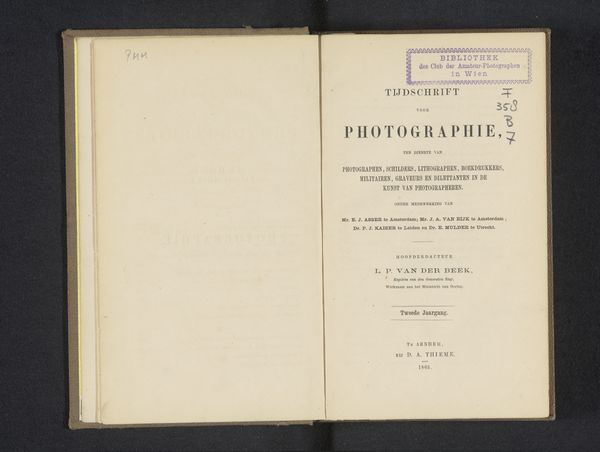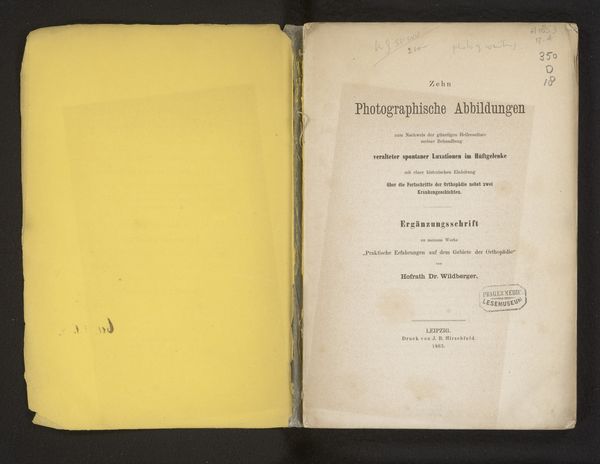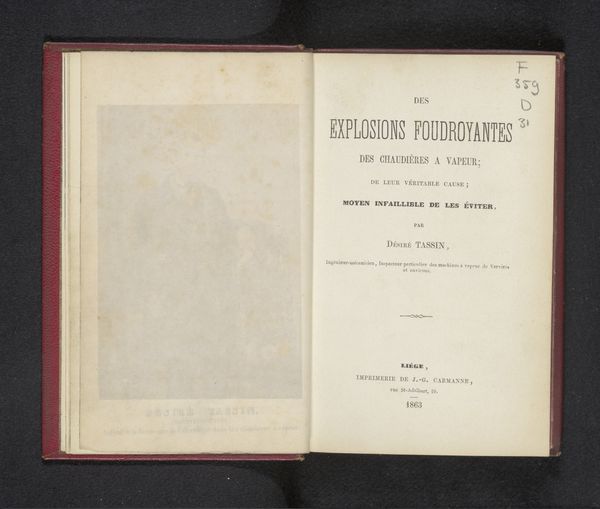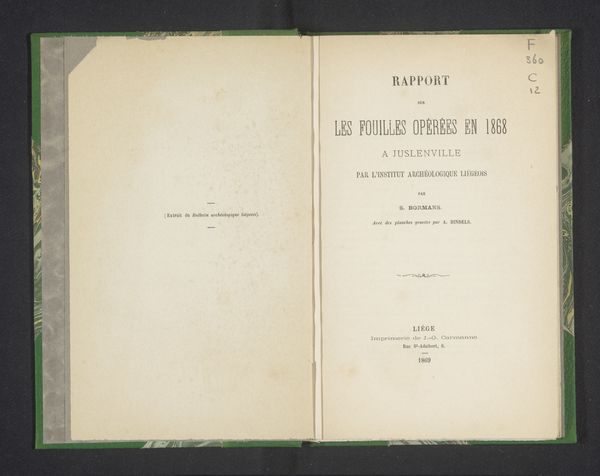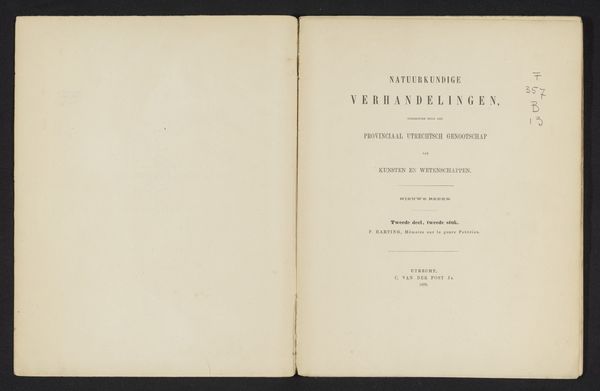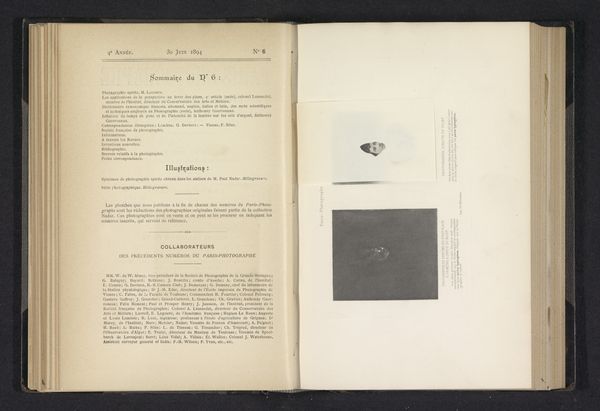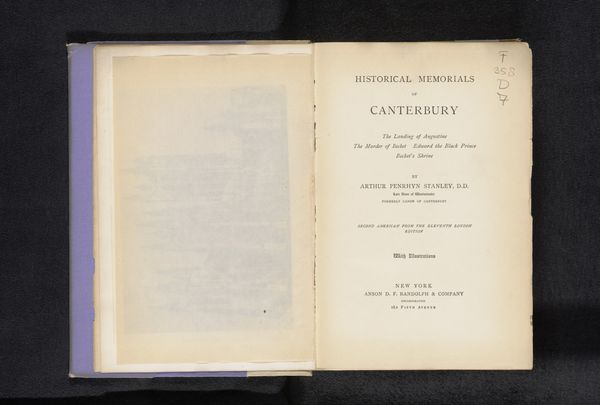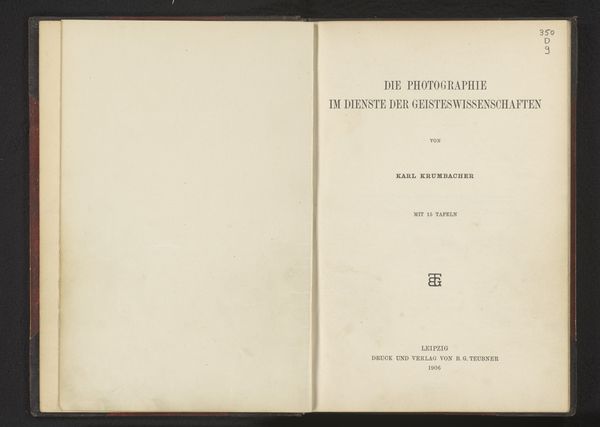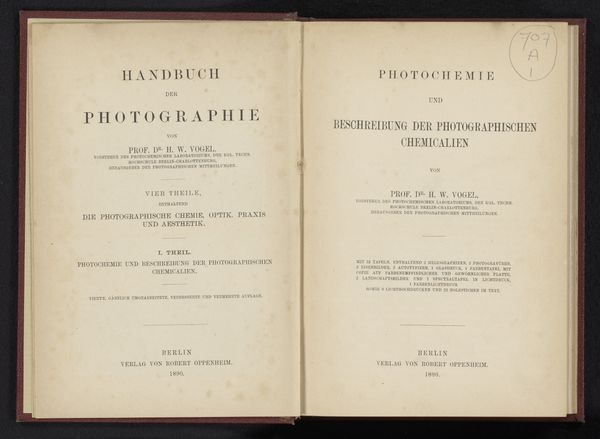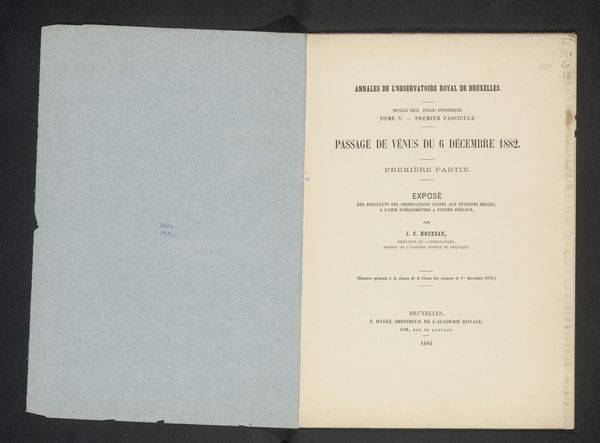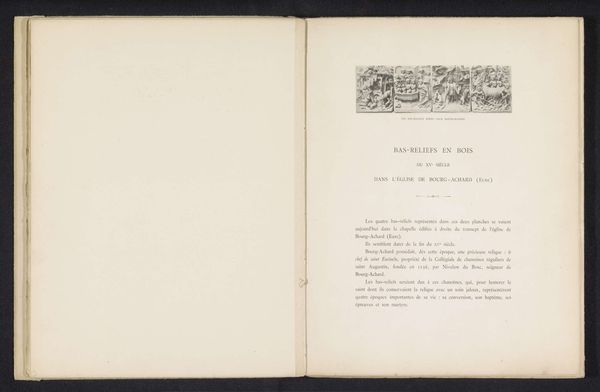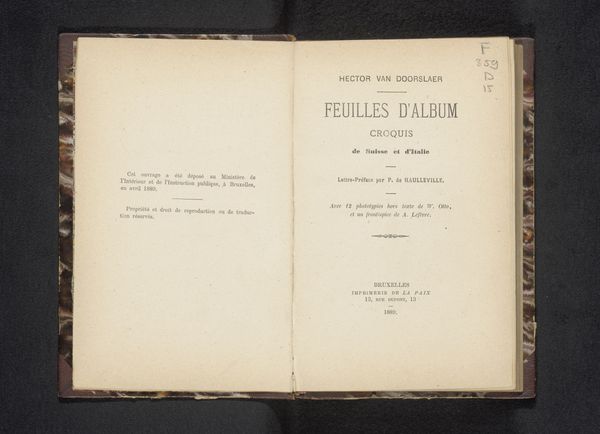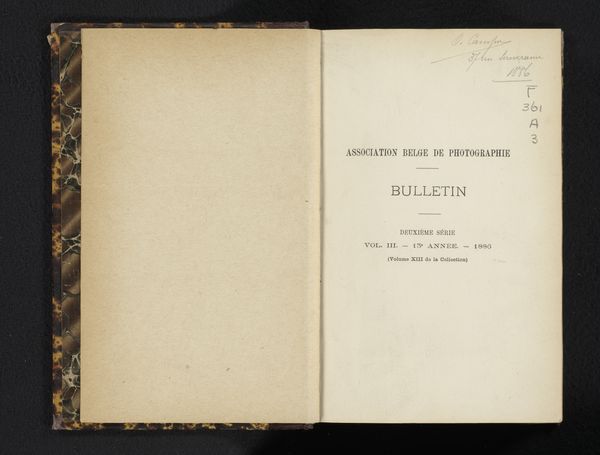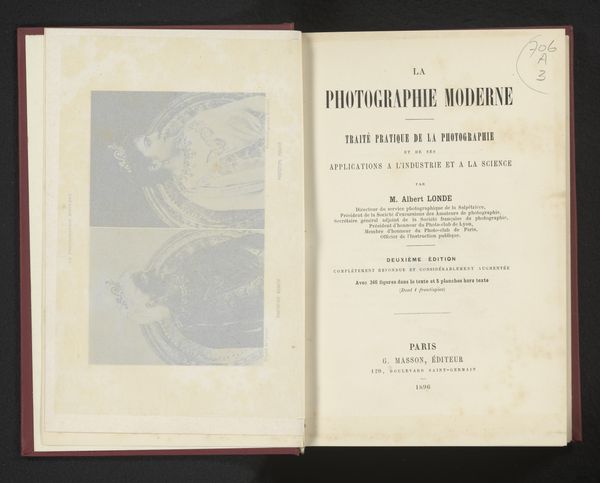
#
script typeface
#
aged paper
#
script typography
# print
#
book
#
hand drawn type
#
personal sketchbook
#
hand-drawn typeface
#
thick font
#
history-painting
#
handwritten font
#
golden font
#
academic-art
#
historical font
Dimensions: height 249 mm, width 170 mm, thickness 36 mm
Copyright: Rijks Museum: Open Domain
Curator: Here we have a fascinating print titled "Physiologie Artistique de l'Homme en Mouvement," or "Artistic Physiology of Man in Movement," created by Paul Richer in 1895. It’s a rather formal title page, isn’t it? Editor: It has a certain antique charm with that hand-drawn typeface. There's a warmth to it, and I can practically feel the texture of the aged paper. The density of the text also makes it striking. Curator: Indeed. Richer, being a professor of artistic anatomy, approached the subject from a distinctly academic angle. This publication fits within the broader context of late 19th-century scientific illustration and the drive to codify and understand human movement. It would have been circulated among art academies, libraries and intellectual circles. Editor: Looking at the composition, there's a real balance between the two pages. The right side, presenting the book’s title and author, uses a clear, hierarchical arrangement of typefaces to establish authority. It visually reinforces the book’s scientific and artistic credentials. The left page listing further works by the author creates an intriguing mirrored balance. Curator: The script typeface is particularly interesting because of the academic nature of this volume. One might not immediately expect that, yet the inclusion points to the humanism and the social function of art and anatomical study at the time. Editor: From a design standpoint, it creates a lovely visual contrast, but also creates a certain distance. There's formality implied, almost creating a visual hierarchy mirroring social roles. Curator: Precisely. The book itself contributed to defining those roles. Editor: Examining how form and content collide here has provided a fresh perspective for me on its artistic interpretation! Curator: Agreed, analyzing art with both the context and formalism gives us the whole picture, every time.
Comments
No comments
Be the first to comment and join the conversation on the ultimate creative platform.
